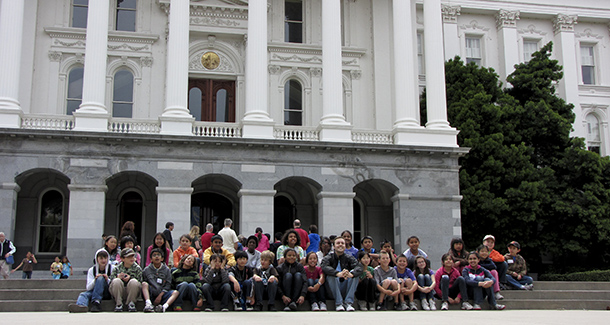
(Photo Credit: Christina Spicuzza/Flickr)
Originally published in The Business Journals special supplement “CA Fwd: Fixing California – Then and Now“
California Forward was created in 2007 to inspire comprehensive changes to the way public decisions were being made.
Over the past decade, many of the needed reforms identified by CA Fwd have been enacted and implemented to ease partisan gridlock, reverse fiscal trends and begin a restructuring of government to better align with the state’s size, diversity and complexity.
This work continues as CA Fwd advocates alongside key stakeholders, legislators, county officials and regional civic leaders for greater local control of education, public safety and social service programs, as well as new alignment of resources to match program responsibilities.
“California Forward’s advocacy in the area of governance reforms and a more transparent public process, along with their efforts in the area of voter engagement, support for a majority vote to pass the state budget and term-limit reform has been a benefit for all Californians,” says Kevin Mullin, Assembly Speaker pro Tem.
“As significant as the reforms achieved by California Forward are, it is the way they have gone about cutting across partisan lines and interest groups to forge collaborative solutions that’s created a new model of decision making that serves all Californians,” says Assemblymember David Chiu.
“California Forward appreciates that different regions of the state have differing challenges and resources and has effectively engaged regional leaders in identifying needs and designing strategies to respond to those needs while keeping statewide interests top of mind.”
New redistricting laws amplify the progress made with the passage of the top-two primary that opened up state government to problem solvers who prioritize their constituents above their political party.
State Senator Steve Glazer, who won office in 2015 following a contentious special election, credits the top-two primary for creating space for independent-minded candidates.
“Our new top-two primary encourages candidates and elected officials to look at public policy proposals from a higher and broader political perch,” says Glazer. “California Forward’s work to advance these types of political reforms is making a big difference in molding our government into one that is more open, fair, representative and responsive.”
“We need to rebuild trust between the people and our government and California Forward is leading this effort in important and impactful ways.”
Key wins for transparency and accountability
CA Fwd partnered in several successful efforts in the last legislative session to advance a more responsive and representative government that’s accountable for results.
Access to funding data: CA Fwd helped to make the case for accelerating the modernization of the Cal-Access database system that tracks campaign spending, lobbyist reporting and independent expenditure campaigns. “Upgrading and modernizing the state’s campaign finance technology is a critical next step in restoring public trust in government by providing information about who is seeking influence and funding campaigns,” says Jim Mayer, president & CEO, CA Fwd.
Public financing of elections: Senate Bill 1107, which allows for public financing of elections, is an example of the power of broad-base coalitions in enacting reforms. Public financing is seen as an important step in reducing the influence of special interest money in campaigns. CA Fwd co-convened the work group that surfaced the opportunity and provided explicitly bipartisan support for the measure.
Citizen redistricting: CA Fwd was an original partner in the work that led to reducing gerrymandering by giving the decennial job of redrawing congressional and state legislative districts to citizens. New legislation now allows cities and counties to create independent redistricting commissions to draw district lines for elections. The new law is expected to have far-reaching implications for historically underrepresented communities.

